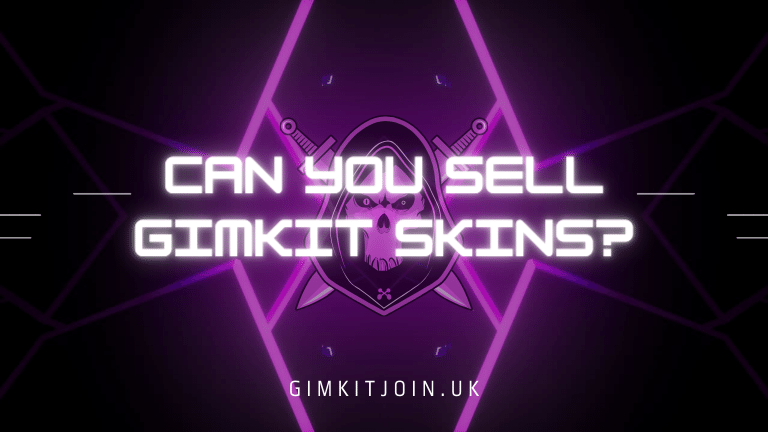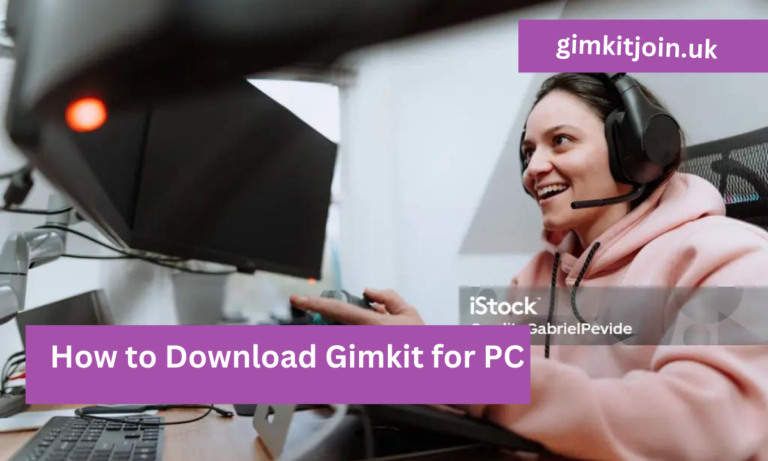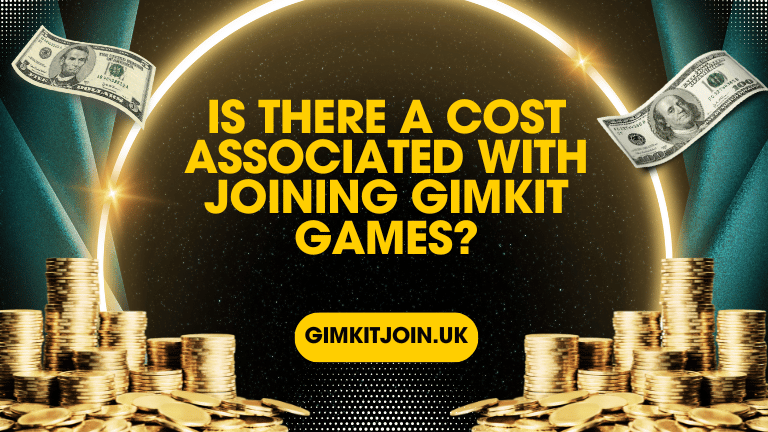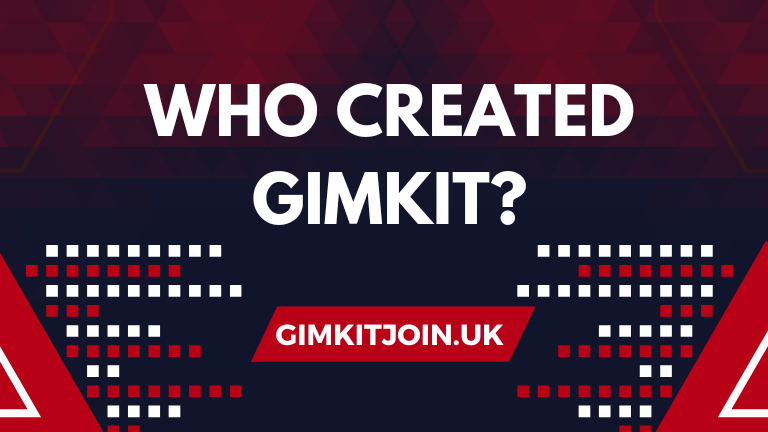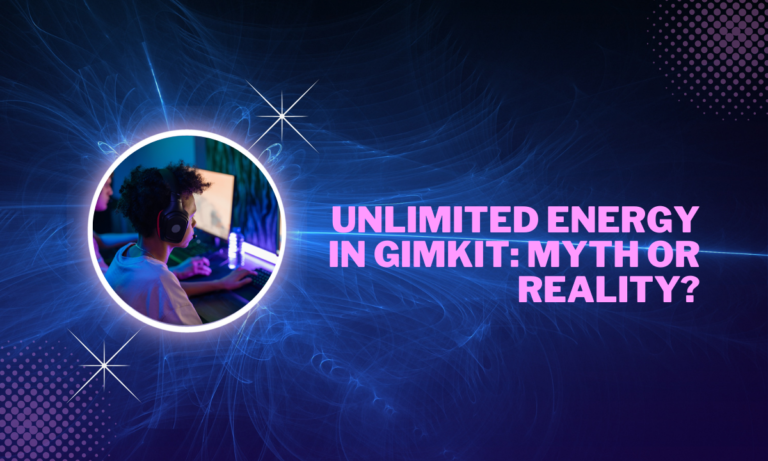Can You Sell Gimkit Skins?
Can You Sell Gimkit Skins? One such platform that has embraced this trend is Gimkit, a game-based learning platform that allows students to earn various virtual rewards, including skins. However, as the value and popularity of these items continue to rise, a burning question emerges: Can you sell Gimkit skins? This comprehensive guide delves into the intricacies of virtual rewards, exploring the potential for monetization, the legal and ethical considerations, and the impact on the gaming and educational communities.
Understanding Virtual Rewards and Their Significance
Before diving into the specifics of selling Gimkit skins, it’s crucial to understand the concept of virtual rewards and their significance within online platforms.
What are Virtual Rewards?
Virtual rewards are digital assets or items that users can earn, collect, or purchase within the context of online games, educational platforms, or virtual environments. These rewards can take various forms, such as skins (cosmetic customizations for characters or objects), stickers, badges, virtual currency, or other digital collectibles.
The primary purpose of virtual rewards is to enhance user engagement, provide a sense of achievement and progression, and foster a sense of community and social interaction among users.
The Rise of Virtual Economies
As virtual rewards have gained popularity, a thriving virtual economy has emerged, where these digital assets hold perceived value and can be traded or exchanged among users. This phenomenon has given rise to online marketplaces and trading platforms specifically designed for the buying, selling, and trading of virtual items.
The virtual economy has become a significant aspect of the gaming and online community, with some rare or highly sought-after items commanding substantial prices, often surpassing the value of their physical counterparts.
Gamification and Educational Platforms
Virtual rewards have also found their way into educational platforms and gamified learning environments, such as Gimkit join. In these contexts, virtual rewards serve as motivational tools, encouraging students to actively participate, engage with the educational content, and strive for academic achievements.
By incorporating elements of gamification, including virtual rewards, educational platforms aim to make learning more engaging, interactive, and enjoyable, fostering a positive attitude towards education and promoting sustained engagement.
Gimkit: A Game-Based Learning Platform
Before exploring the potential for selling Gimkit skins, it’s essential to understand the platform itself and its approach to virtual rewards.
What is Gimkit?
Gimkit is a pioneering game-based learning platform that leverages the power of gamification to enhance the educational experience for students. Developed with the goal of making learning more engaging and interactive, Gimkit offers a wide range of educational games and activities spanning various subjects and grade levels.
The platform allows teachers to create customized learning experiences tailored to their students’ needs and interests, incorporating elements of competition, collaboration, and rewards to foster motivation and engagement.
Virtual Rewards in Gimkit
Within the Gimkit platform, students can earn various virtual rewards, including skins, as they participate in games and activities. These skins serve as cosmetic customizations for their in-game avatars or other visual elements, allowing students to personalize their gaming experience and express their individuality.
Gimkit’s approach to virtual rewards is rooted in the principles of gamification, where students are motivated to engage with the educational content and achieve academic milestones in exchange for these digital collectibles.
The Purpose of Virtual Rewards in Educational Settings
The incorporation of virtual rewards in educational settings, such as Gimkit, serves several purposes:
- Motivation and Engagement: The prospect of earning unique and collectible virtual rewards can motivate students to actively participate in educational games and activities, fostering a sense of accomplishment and driving continued engagement with the learning content.
- Recognition and Achievement: Virtual rewards act as tangible symbols of a student’s progress and achievements within the educational platform, instilling a sense of pride and encouraging further academic pursuits.
- Social Interaction and Collaboration: The ability to collect, trade, or share virtual rewards can facilitate social interaction and collaboration among students, fostering a sense of community and friendly competition within the learning environment.
- Personalization and Self-Expression: Virtual rewards, such as skins, allow students to personalize their in-game experiences and express their unique personalities, further enhancing their engagement and enjoyment of the educational content.
By leveraging virtual rewards, platforms like Gimkit aim to create a more immersive and enjoyable learning experience, tapping into the intrinsic motivators that drive students to succeed and engage with the educational content.
The Potential for Selling Gimkit Skins
As the popularity of Gimkit and its virtual rewards continues to grow, the question of whether users can sell their earned Gimkit skins has gained attention. While the platform itself does not officially permit or facilitate the buying and selling of skins, a thriving underground market for these digital assets has emerged.
The Underground Market for Gimkit Skins
Despite the lack of official support, dedicated online communities and marketplaces have sprung up, facilitating the buying, selling, and trading of Gimkit skins among users. These underground markets operate through various channels, such as dedicated websites, forums, social media groups, and peer-to-peer transactions.
Within these communities, users can list their rare or highly coveted Gimkit skins for sale, often commanding premium prices based on the rarity, desirability, or perceived value of the skin. Buyers, driven by their desire to obtain exclusive or hard-to-acquire skins, are willing to pay substantial amounts to add these digital collectibles to their collections.
Motivations for Buying and Selling Gimkit Skins
The motivations behind the buying and selling of Gimkit skins can vary among users:
- Collectors and Enthusiasts: Some users are driven by a passion for collecting and owning rare or exclusive Gimkit skins, much like physical collectibles. These collectors are willing to pay premium prices to acquire highly sought-after skins, driven by the thrill of the hunt and the desire to complete their collections.
- Profit-Seekers: Others view the underground market for Gimkit skins as an opportunity for financial gain. By acquiring rare or valuable skins through gameplay or trading, these users can then resell them at a profit to interested buyers, capitalizing on the demand for these digital assets.
- Convenience and Time-Saving: For some users, buying Gimkit skins directly from others is a matter of convenience and time-saving. Rather than investing countless hours into gameplay to earn specific skins, they are willing to pay a premium to acquire the desired skins more quickly.
- Personal Expression and Customization: In some cases, users may purchase Gimkit skins solely for the purpose of personal expression and customization. Owning unique or rare skins can enhance their in-game experience and allow them to stand out among their peers.
While the underground market for Gimkit skins thrives, it’s important to note that the platform itself does not officially endorse or facilitate these transactions, raising legal and ethical concerns that will be explored later in this guide.
Legal and Ethical Considerations
The buying and selling of virtual items, such as Gimkit skins, is a complex issue that raises various legal and ethical considerations. It’s crucial to approach this topic with caution and a thorough understanding of the potential implications.
Intellectual Property Rights and Terms of Service
Most online platforms, including Gimkit, assert ownership over the virtual assets and content within their ecosystems. This means that while users may earn or collect these items, they do not necessarily have the legal right to sell or transfer them for personal gain.
The terms of service and end-user license agreements (EULAs) of these platforms often explicitly prohibit the buying, selling, or trading of virtual items, as well as any attempts to exploit the platform for commercial purposes.
By engaging in the unauthorized buying or selling of Gimkit skins, users may be in violation of the platform’s terms of service, potentially leading to account suspensions, bans, or legal consequences.
Ethical Concerns and Fair Play
Beyond the legal implications, the buying and selling of virtual rewards raise ethical concerns within the gaming and educational communities. Some argue that engaging in these practices undermines the principles of fair play and the intended purpose of virtual rewards as motivational tools and achievement milestones.
When users can simply purchase rare or exclusive virtual items, it diminishes the sense of accomplishment and personal achievement associated with earning them through gameplay or academic performance. This can potentially discourage active participation and engagement, undermining the core objectives of platforms like Gimkit.
Additionally, the existence of a underground market for virtual items can create an unfair advantage for those with greater financial resources, potentially creating a divide within the user community and fostering an environment of inequality and exclusion.
Potential Risks and Cybersecurity Concerns
Engaging in the underground market for virtual items also carries inherent risks and cybersecurity concerns. These transactions often take place through unregulated channels, with little to no oversight or protection for buyers and sellers.
Participants may be exposed to potential scams, fraud, or malicious activities, such as phishing attempts, malware distribution, or identity theft. Additionally, the anonymity and lack of accountability within these underground markets can make it challenging to seek recourse in case of disputes or violations.
It’s essential for users to exercise caution and prioritize their personal safety and security when considering engaging in the buying or selling of virtual items through unofficial channels.
Alternatives and Best Practices
While the temptation to buy or sell Gimkit skins may be strong, it’s crucial to explore alternative approaches and best practices that align with the platform’s intended purpose and ethical principles.
Earning Skins Through Gameplay and Academic Achievement
The primary and recommended method for acquiring Gimkit skins is through active participation in the platform’s educational games and activities, as well as achieving academic milestones. By engaging with the educational content and demonstrating mastery of the subject matter, students can earn virtual rewards, including skins, as a recognition of their efforts and achievements.
This approach not only aligns with the core objectives of Gimkit but also fosters a sense of personal accomplishment, encourages sustained engagement, and promotes a positive attitude towards learning.
Trading and Gifting Within the Community
While the buying and selling of Gimkit skins may be discouraged or prohibited, many platforms allow for the trading or gifting of virtual items among users within the community. This practice can be a more ethical and community-focused alternative to the underground market, fostering social interactions, collaboration, and a sense of camaraderie among users.
By establishing fair and transparent trading systems or gifting protocols, users can exchange or share their virtual rewards without compromising the integrity of the platform or engaging in potentially unethical or illegal practices.
Advocating for Official Trading Systems and Marketplaces
As the demand for virtual item trading continues to grow, users and communities can advocate for platforms like Gimkit to implement official and regulated trading systems or marketplaces. By providing a sanctioned and controlled environment for the exchange of virtual rewards, platforms can address the existing underground market while ensuring fairness, transparency, and adherence to legal and ethical standards.
Official trading systems could incorporate mechanisms to prevent exploitation, such as limitations on trading volume, verification processes, and safeguards against real-money transactions. This approach would not only legitimize the practice but also provide a safer and more secure environment for users to engage in virtual item exchanges.
Focusing on the Educational Experience and Personal Growth
Ultimately, the true value of platforms like Gimkit lies in the educational experience and personal growth they facilitate. While virtual rewards like skins can serve as motivational tools, it’s important to maintain a balanced perspective and prioritize the acquisition of knowledge, skills, and a genuine passion for learning.
By shifting the focus away from the pursuit of virtual items and towards the intrinsic rewards of personal development and academic achievement, users can cultivate a healthier and more fulfilling relationship with educational platforms like Gimkit.
Ethical Guidelines and Community Engagement
To promote a positive and inclusive environment within the Gimkit community, it’s crucial to establish and adhere to ethical guidelines and principles. These guidelines can be developed through collaboration and input from stakeholders, including educators, parents, and the users themselves.
By fostering open discussions and community engagement, platforms like Gimkit can encourage responsible behavior, address concerns related to the buying and selling of virtual items, and promote a culture of respect, fairness, and ethical conduct.
Additionally, community-driven initiatives, such as peer-to-peer mentoring, educational workshops, or awareness campaigns, can play a vital role in educating users about the potential risks and implications of engaging in underground markets for virtual items, while promoting positive alternatives and best practices.
The Future of Virtual Rewards and Digital Ownership
The debate surrounding the buying and selling of virtual items like Gimkit skins is part of a broader conversation about digital ownership and the evolving nature of virtual economies. As technology continues to advance and our lives become increasingly intertwined with digital realms, the concept of virtual property and its associated rights and responsibilities will likely remain a topic of ongoing discussion and evolution.
Emerging Technologies and Digital Ownership Models
The advent of emerging technologies, such as blockchain and non-fungible tokens (NFTs), has introduced new paradigms for digital ownership and the monetization of virtual assets. These technologies offer the potential for secure, transparent, and decentralized ownership models, where users can truly own and trade their virtual items without the need for intermediaries or centralized authorities.
While the application of these technologies to educational platforms and virtual rewards is still in its infancy, their potential to disrupt traditional models of digital ownership and facilitate legitimate virtual economies cannot be ignored.
Regulatory Frameworks and Industry Standards
As virtual economies and the trade of digital assets continue to gain traction, there will likely be a growing need for regulatory frameworks and industry standards to ensure fairness, transparency, and consumer protection.
Governments, industry organizations, and stakeholders may collaborate to develop guidelines, best practices, and legal frameworks that govern the buying, selling, and trading of virtual items, addressing issues such as intellectual property rights, consumer protection, taxation, and anti-money laundering measures.
These efforts could help legitimize and regulate virtual economies, providing a safer and more structured environment for users to engage with virtual rewards while mitigating potential risks and unethical practices.
Ethical Considerations and User Education
As the landscape of virtual rewards and digital ownership evolves, it will be crucial to maintain a strong emphasis on ethical considerations and user education. Platforms and communities should foster open dialogues and educational initiatives to raise awareness about the potential implications of virtual item trading, responsible digital citizenship, and the importance of maintaining a balanced and healthy relationship with virtual environments.
By prioritizing ethical conduct, promoting positive values, and empowering users with knowledge and critical thinking skills, the virtual worlds of educational platforms like Gimkit can continue to serve as catalysts for learning, personal growth, and positive social interactions, while minimizing the risks and potential drawbacks associated with the commodification of virtual rewards.
Conclusion
The question of whether you can sell Gimkit skins is a complex and multifaceted issue that touches upon legal, ethical, and practical considerations. While an underground market for these virtual rewards exists, engaging in the buying or selling of Gimkit skins raises concerns regarding intellectual property rights, fair play principles, and potential risks to users.
However, it’s important to recognize that the demand for virtual item trading stems from a genuine desire for personal expression, customization, and a sense of achievement within these digital realms. As such, it is crucial for platforms like Gimkit to address this demand in responsible and ethical ways, through official trading systems, clear guidelines, and community engagement.
Ultimately, the true value of educational platforms like Gimkit lies in their ability to foster a love for learning, personal growth, and positive social interactions. While virtual rewards can serve as motivational tools, they should not overshadow the broader educational objectives or compromise the integrity of the platform and its users.
As technology continues to evolve and virtual economies become more prevalent, it will be essential for all stakeholders – developers, educators, regulators, and users – to collaborate and establish ethical frameworks and best practices that strike a balance between innovation, consumer protection, and responsible digital citizenship.
By embracing a holistic and principled approach, the virtual worlds of educational platforms can continue to serve as catalysts for learning, personal growth, and positive social interactions, while mitigating the risks and potential drawbacks associated with the commodification of virtual rewards.
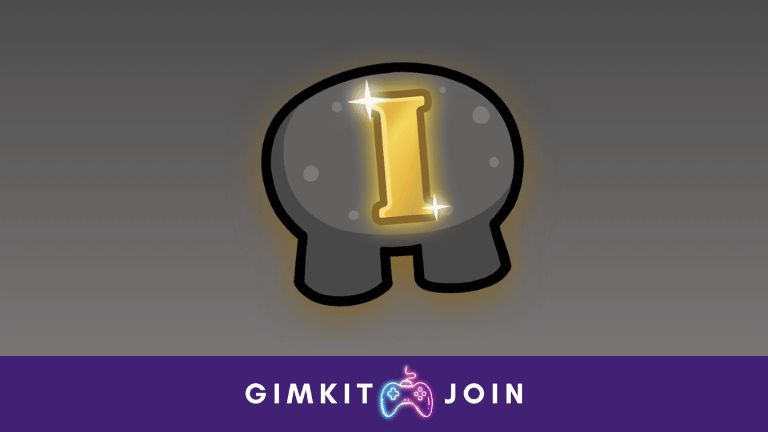
FAQs
Can I sell Gimkit skins?
No, Gimkit skins are non-transferable and cannot be sold or transferred to other users.
Are there any restrictions on selling Gimkit skins?
Yes, Gimkit skins are intended for personal use only and cannot be exchanged for money or other goods.
Can I give my Gimkit skins to someone else?
No, Gimkit skins are tied to your account and cannot be transferred or gifted to another user.
What happens if I try to sell Gimkit skins?
Attempting to sell Gimkit skins violates Gimkit’s terms of service and may result in the suspension or termination of your account.
Can I trade Gimkit skins with other players?
No, trading Gimkit skins with other players is not allowed. Skins are meant to be a personal customization option for your account.

